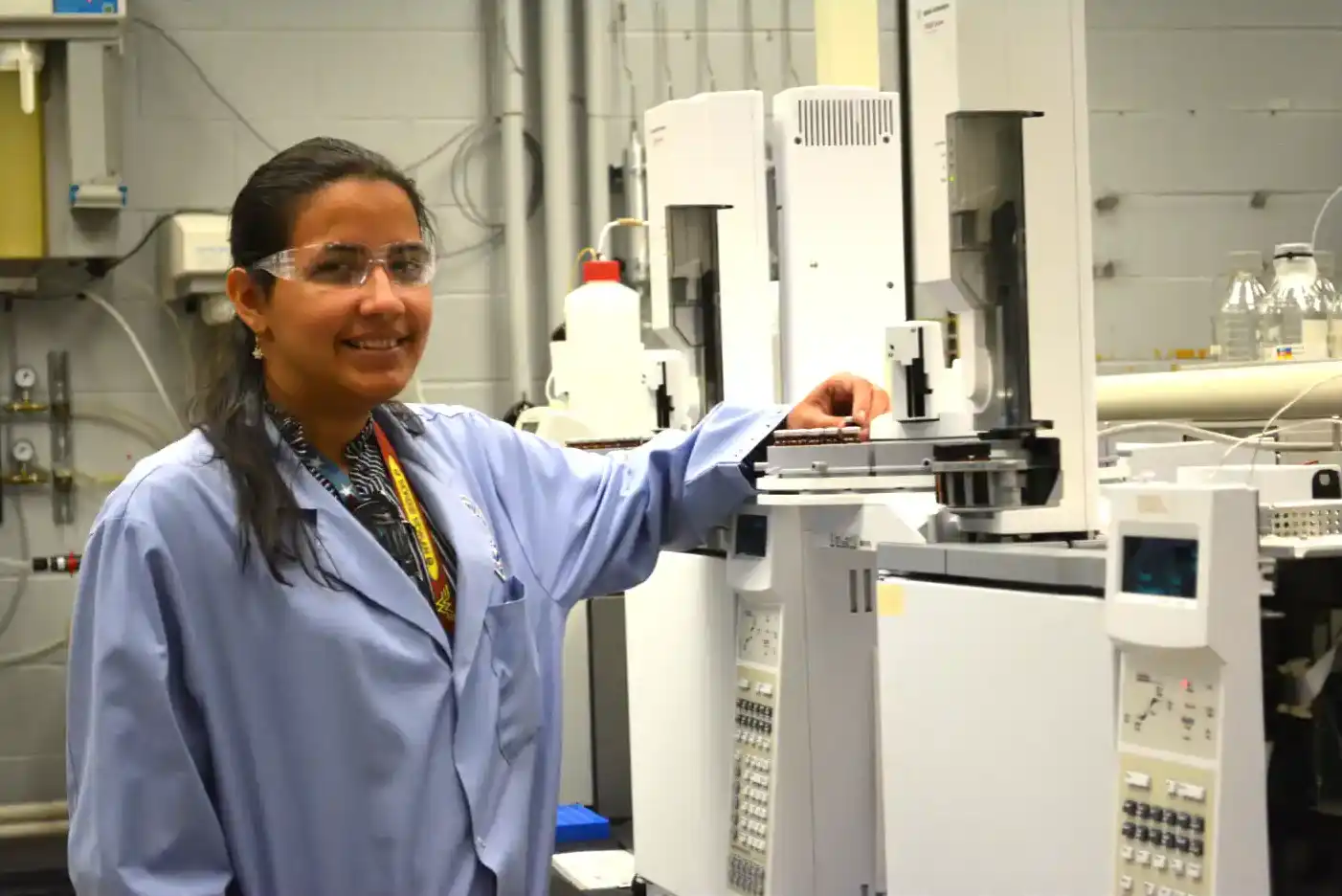Internship launches chemistry student back to her explosive interests
Meet Amanda Figueroa-Navedo
Amanda Figueroa-Navedo had plans to become a chemical engineer until she was blown away by an experience that launched her on a different career trajectory. Her catalyst for change? An explosive chemistry course at the University of Puerto Rico Mayaguez Campus (UPRM).

Amanda Figueroa-Navedo had the opportunity to pursue a long-time interest in explosives research at the TSL. After completing two degrees in chemistry, Figueroa-Navedo was able to apply her knowledge to trace explosive detection to improve testing of contraband materials.
The research material and laboratory experience offered for chemistry students was captivating and inspiring to Figueroa. She decided to switch her undergraduate degree to chemistry and pursue her master’s degree in general chemistry. Her new path allowed her to explore many different areas of chemistry and make significant professional achievements in her field. But she never forgot her fascination for explosives research.
After completing two degrees, Figueroa finally got her chance. She joined the Applied Research Division at the Transportation Security Laboratory (TSL) in Atlantic City, New Jersey, to study trace explosive detection. Her experience was made possible by the U.S. Department of Homeland Security (DHS) Transportation Security Laboratory (TSL) Visiting Scientist Program.
The program is designed to provide opportunities for research, development and education on DHS mission-relevant science for academics on multiple levels, ranging from undergraduates and graduate students to postdoctoral students and visiting faculty members. The program seeks to enhance the quantity, quality and diversity of the future DHS scientific and engineering workforce.
With her mentor John Brady, Ph.D., Figueroa investigated a new method in trace explosive detection that was developed and produced by TSL that uses pressurized metered dose inhalers (pMDI) to prepare test samples. The new method was designed with hopes to improve efficiency and reduce cost and labor with test sample preparation. Previous research on the method showed that this type of sample preparation was capable of delivering quantifiable amounts of contraband material to be tested.
Figueroa aimed to help characterize this new method of sample preparation by using a model substance to examine the pMDI deposits. She collected and examined information regarding particle size, distribution, and shape of the deposited substance. The deposits produced by the new method using pMDI were then compared to deposits produced by traditional methods for the same material.
Figueroa’s effort to characterize this new method of sample preparation contributes to ongoing research at TSL to increase the accuracy and efficiency of testing and sample preparation of contraband materials. Improving TSL’s technology enhances their ability to better evaluate technology that aims to deter and detect dangerous contraband material, and make the nation a safer place.
During her internship, Figueroa was able to gain new experience in research as well as practical applications in operating chemistry laboratory equipment that she had not previously had the opportunity to perform. One of the most meaningful parts of Figueroa’s internship, however, was the representation of women at TSL. “It was clear to me that there are dedicated women [at the lab] who have spent years working toward the protection of American citizens,” Figueroa said. “I am used to a very different working environment in academia and it was fulfilling to see that women in STEM are part of this effort.”
After completing her internship, Figueroa started a doctoral program in chemistry at Northeastern University, where she currently resides.
The DHS TSL Visiting Scientist Program is administered by the Oak Ridge Institute for Science and Education (ORISE). ORISE is a U.S. Department of Energy (DOE) asset managed by Oak Ridge Associated Universities (ORAU) through a contract between ORAU and DOE.

